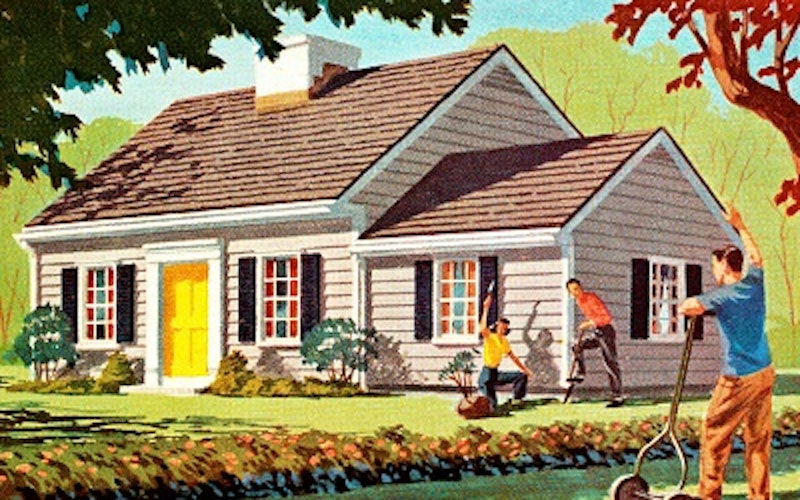
Culture At Large
A different way of loving your neighbor
When I was little, my best friend was also my neighbor. In the summers, we’d run to each other’s houses, knock on each other’s doors, play in each others’ yards. We’d stop midway to enjoy a grilled cheese at one of our kitchen tables and separate only to head home for dinner. But then, we’d meet again after dishes were clanked down in sinks; this time running with the flock of neighborhood kids, playing ghost in the graveyard as the sun went down.
Having a very best friend as a very close neighbor was the best. Those were the days. But I’m really glad those days are over.
Don’t get me wrong: I love my neighbors. And I count many of them as friends. I have neighbors I’ve stayed up too late and had a bit too much vino with. We’ve laughed; we’ve cried. We’ve celebrated births and deaths. We’ve huddled, worried, as ambulances sat in driveways. We’ve weathered storms (literally); we’ve been through power outages and ruined basements together. We’ve shared generator-powered electricity as well as sugar.
My neighbors are great. But best friends? Nah. And it’s as it should be. Some may be inclined to tsk tsk at this statement, say it’s a shame I don’t seek closer friendships with my neighbors. Perhaps some of you think I’m not being very Christian, not very loving toward my neighbor. But I stand by my belief that “good fences make good neighbors” is about more than physical fences; it’s about relationship boundaries. It’s about believing that those who know the deepest secrets of your soul shouldn’t be the same people who know the deepest secrets of your recycling bin. And I’m not alone.
“Good fences make good neighbors” is about more than physical fences. It’s about relationship boundaries.
Consider this from a recent article in Wired: “Nirav Tolia has learned just how many different things neighbors can accomplish. Using Nextdoor, the site built by Tolia and his team, neighbors get burglars arrested, investigate possible water poisoning and stop the installation of parking meters. They lend one another ladders and grills, recommend babysitters and upload videos of locals.
“But the one thing they’re not looking to do is make friends.”
In fact, the article cites a Pew study that found “neighbors comprise just 2 percent of a typical American’s Facebook friends, eclipsed by high school and college buddies (31 percent), family (20 percent) and coworkers (10 percent).”
Can this be true? A quick survey of my Facebook friends proves this to be about right. But what about for us Christians? Can this be very Jesus-y? To count so few actual neighbors - people we live among, people we are called to love - among our friends?
Again, I think this seems fair enough. After all, to love doesn’t always mean to befriend, a concept the folks at Nextdoor seem to grasp. While Jesus’ command isn’t explicitly cited in their manifesto, it reads as one concrete way of living it out.
Instead of simply creating “friendships” or encouraging “followers,” Nextdoor seeks to help neighbors band together to do all things local, from reporting local crime and corruption to organizing city hall petitions to referring babysitters. The result of this community organizing can, according to Tolia, Nextdoor’s developer, “turn neighbors into something much more powerful than groups of friends.”
Seeking ways to empower our neighbors and our neighborhoods is a wonderful way to go about loving them, don’t you think? While we may not always share deepest, darkest secrets or even our Saturday nights with our neighbors, we do share our streets, our schools, our fences, our communities with them. And caring enough - collectively - about these things, being empowered to improve lives, to lift one another up, to keep each other safe, may not be friendship, but it is love.
What do you think?
- How would you describe your relationships with your neighbors?
- What does it mean to be a good Christian neighbor?
- How should Christians handle conflict in their neighborhoods?
Topics: Culture At Large, Theology & The Church, Evangelism, Home & Family